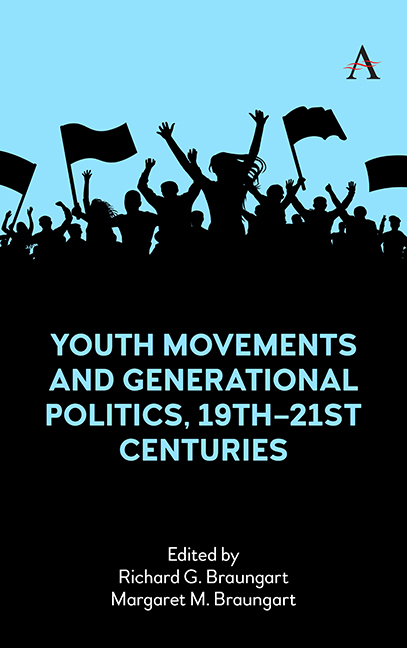16 - Aging and Politics
Published online by Cambridge University Press: 18 November 2023
Summary
This essay provides an overview of the relationship between aging and politics from childhood through older adulthood. It describes the developmental and political characteristics of each stage in the life course and the effects of mentoring, mid-life crisis, and aging processes on the behavior and policies of political leaders. An assessment is made of the life-cycle predictions that different age groups are likely to disagree over politics and that political outlooks change with age. Results indicate that age-group disagreement is greater over some political issues than others and that the political orientations developed during youth do not change substantially with age.
The relationship between age and politics has long intrigued students of human behavior. Dividing the life span into the three stages of childhood, youth, and old age, the ancient Greeks identified the distinctive characteristics and interests of the different age groups. Youth was seen as a time of energy and impetuousness, while old age was viewed as a time of inactivity, contemplation and counsel, with the high spiritedness of youth requiring the steady direction of the elders (Nash, 1978). The Greeks also recognized that inherent in the relationship between the young and old are the forces for social stability and change. As Aristotle observed, political revolutions are not only due to the conflict between rich and poor but between fathers and sons (Feuer, 1969; Marias, 1970). In the 19th century, the French positivists divided the life span into distinct ages which act as “conditioning forces” for human experiences. “Discoverable” laws of historical development were assumed to be rooted in the human life cycle. According to the positivists, the past influences interpretations of life in the present, and the interaction of those in different phases of life plays a major role in societal change (Jansen, 1975). Schooled by the positivists, Ferrari extended these ideas to politics in his Histoire des révolutions d’ltalie (1856–58), contending that history changes about every thirty years as each new “biotic” generation tries to overthrow the government in order to take its place and rule (Marias, 1970).
More recently, the growing literature in human development and the heightened political activity of young people in the 1960s prompted renewed interest in the relationship between age and politics.
- Type
- Chapter
- Information
- Youth Movements and Generational Politics, 19th-21st Centuries , pp. 409 - 428Publisher: Anthem PressPrint publication year: 2023



